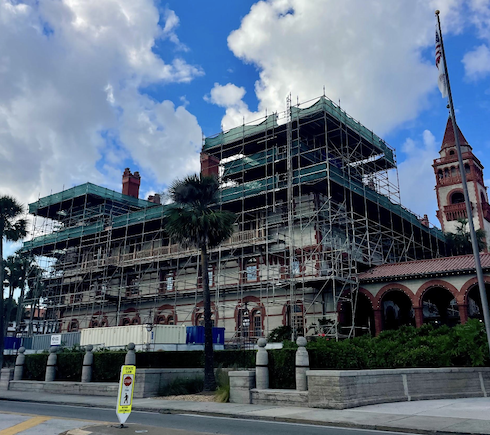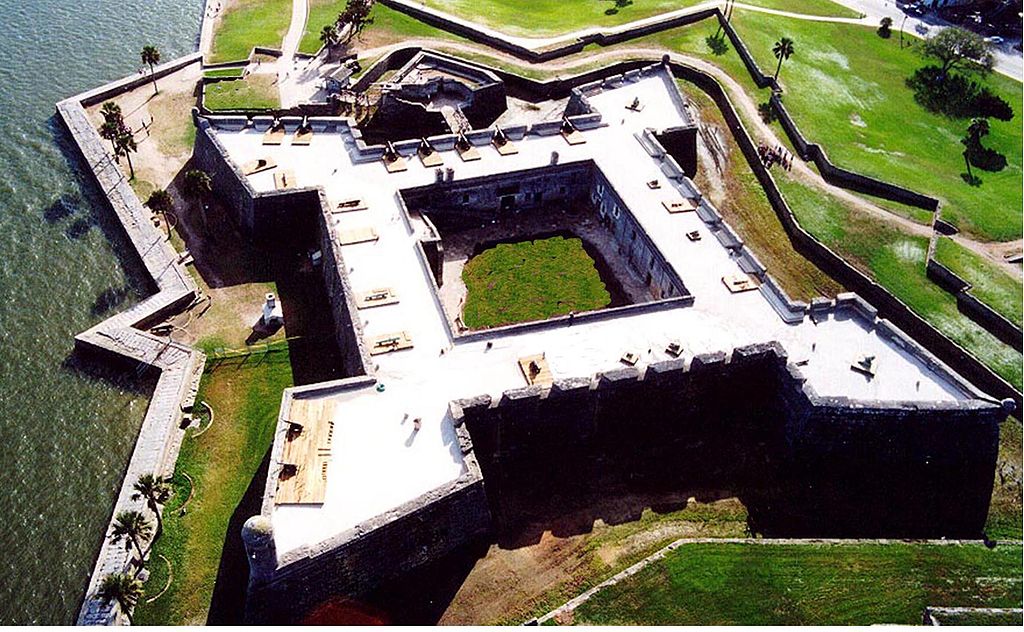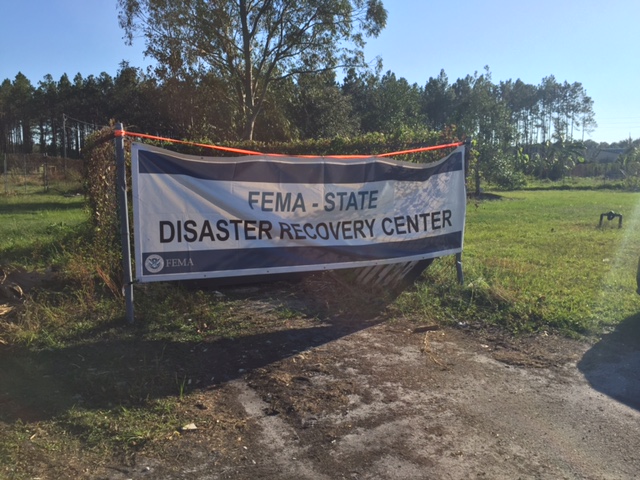By Clemence Treguer
St. Augustine, the nation’s oldest city, faces many challenges as hurricanes become more frequent and destructive. In the heart of the town stands Flagler College, renowned for its architectural beauty and cultural significance. As these threats intensify, the college must put in place some action to balance between preserving its historic heritage and adopting modern adaptations to safeguard its future.
Over the past years, St. Augustine has seen a remarkable increase in hurricane action. “We are seeing more intense and frequent hurricanes,” said Leslee Keys, director of historic preservation and assistant professor-retired at the University of Florida. “This trend is consistent with broader climate change patterns that contribute to stronger and more unpredictable storm systems.”
Among the 20 historic buildings on the campus of Flagler College is the iconic Ponce de Leon Hall, which is a National Historic Landmark. These buildings, central to the identity of St. Augustine, are particularly at risk because of their age, construction materials, and location in flood-prone areas.
“Our biggest threat is water intrusion due to flooding,” Joe Bruce said, the executive director of facilities at Flagler College.
The basement of Ponce Hall is a frequent victim of flooding, highlighting the ongoing challenges faced by Flagler College.
“The basement of Ponce Hall floods regularly and has for decades,” Keys said “That space should be emptied of all stored materials, such as excess dorm furniture, plumbing fixtures, tables, and chairs.”
Flagler College often finds itself dealing with expensive repairs after hurricanes, a reality that comes with maintaining its historic campus. “After Hurricane Floyd in 1999, Ponce Hall was reroofed,” Keys said. “That effort led to a $2.5 million project that restored the Solarium in time for Flagler College to host the King and Queen of Spain and 60 other guests for a dignitaries’ luncheon.”
In recent years, hurricanes such as Matthew, Irma, Ian, and Nicole have tested the resilience of the college’s infrastructure. As damage accumulates, students have noticed the ongoing cycle of repairs.
“Since I have been at Flagler College, the school had to close multiple times because of hurricanes and damage. If it happens too often, I don’t know how students would be able to receive a good education,” Maddison Culver, a Flagler student said. “The school is always in reconstruction.”
To mitigate these challenges, Flagler College is taking a number of steps, including faster deployment systems and contingency plans.
“We are developing plans to install various stop-log barrier damming systems,” Bruce said. “These systems will be easier and faster to deploy, reducing the chances of human error and making storm prep easier, which will allow the college to maintain normal operations longer before landfall.”
“Not only Flagler College, but also the City of St. Augustine must work together to have a unified approach to addressing stormwaters,” Bruce said.
Looking ahead, Flagler College is refining its operational processes and securing funding for preventive measures. According to Bruce, by the next hurricane season, the college plans to install advanced damming systems to better protect its historic campus. Also, Flagler will continue to create plans for essential offices to operate from alternate locations if displaced by storm damage.
Collaboration with the City of St. Augustine is essential in addressing these shared challenges. By working together, Flagler College and the city can develop unified strategies to protect the historic landmarks.






Be the first to comment on "The Increasing Risks and Effects of Hurricanes in St. Augustine: Challenges and Adaptations at Flagler College"